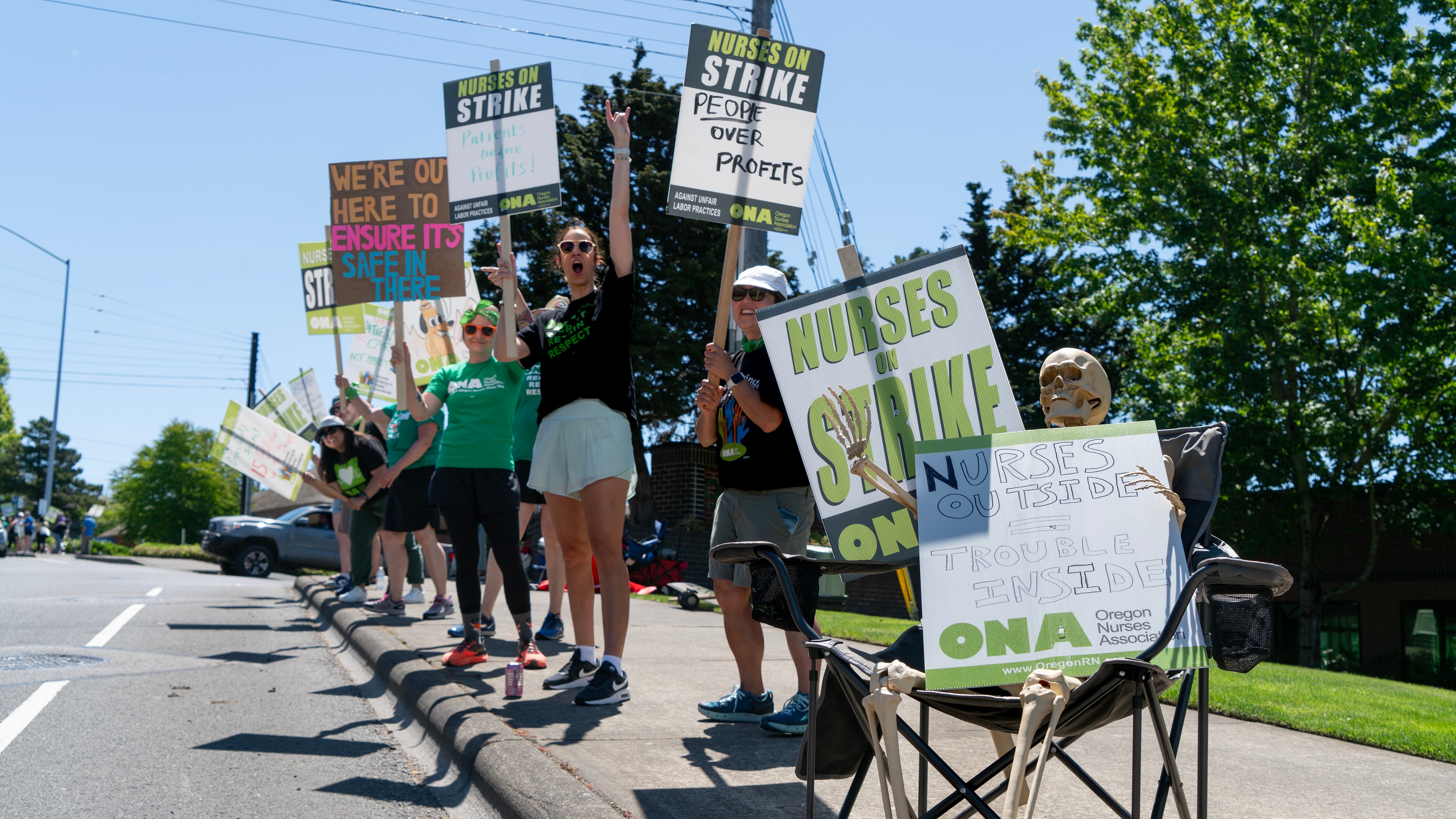As nearly 5,000 Providence Health nurses, doctors, midwives and other workers remain on strike in Hood River, Medford, Newberg, Seaside and several metro-area locations, lawmakers may soon consider extending a benefit now available only in a couple of states.
That benefit: unemployment insurance payments for striking workers.
Senate Bill 916, written at the request of the AFL-CIO of Oregon, would amend current Oregon law, which deems strikers ineligible for unemployment.
The bill has not yet been scheduled for a hearing but has been assigned to the Senate Committee on Labor and Business. Given that the committee’s chair, state Sen. Kathleen Taylor (D-Portland), is one of the bill’s chief sponsors, it is highly likely to get an airing. It doesn’t hurt that the labor group that requested the bill, the AFL-CIO, represents 288 unions, which in turn represent more than 300,000 Oregon workers.
Two states, New York and New Jersey, already allow striking workers to collect unemployment. A bill similar to SB 916 is also under consideration in the Washington Legislature this year.
(In New York and New Jersey, workers become eligible for unemployment after striking for 14 days. SB 916 appears to make workers eligible for unemployment after one week on strike.)
In 2024, there were several high-profile strikes across the nation, including dockworkers represented by the International Longshoreman’s Association and workers at private-sector employers, including Amazon, Boeing and Starbucks.
Oregon has also seen a number of high-profile strikes recently: Teachers in Albany ended a three-week strike in December, about a year after Portland teachers concluded their strike. Grocery store workers in Portland and Boeing workers in Gresham struck last year, and city of Portland workers are moving toward a work stoppage currently.
When workers strike in Oregon now, they don’t get paid (although some union members accrue “strike pay”). For many workers, that reality limits how long they can stay on picket lines.
In a position paper on extending unemployment insurance to striking workers published in October, the National Employment Law Project laid out the rationale for bills like the one now pending in Oregon:
“Providing UI benefits to striking workers also helps bring balance to a system that otherwise tilts substantially towards employers,” the group said. “For example, some corporations wait until workers on strike face such severe economic hardship and distress that they submit to substandard conditions. Knowing they can no longer starve workers out, employers may be more willing to bargain fairly and quickly.”
Employers, who in Oregon pay quarterly taxes to fund unemployment insurance, may disagree with that characterization. A group that represents many of the state’s largest employers, Oregon Business & Industry, will be watching SB 916 carefully.
“Unemployment benefits are a critical safety net for Oregonians who find themselves involuntarily out of work,” says OBI spokesman Erik Lukens. “Extending those benefits to people who choose not to work, for whatever reason, would be a significant and costly change. Should SB 916 receive a hearing, OBI will work with members to develop an appropriate response.”
Graham Trainor, the Oregon AFL-CIO President says the bill would make labor negotiations more balanced.
“Striking workers and their families should not be pushed into poverty for exercising their legally protected right to strike,” Trainor said. “This policy would help level the playing field for workers, put money back into the local economy by giving workers the ability to continue to feed their families during a strike, and will expedite negotiations with employers. When you ask workers why they go out on strike, they will tell you their hands are forced: workers strike because they have to—for economic, safety and community reasons—not because they want to.”
This story was produced by the Oregon Journalism Project, a nonprofit investigative newsroom for the state of Oregon. OJP seeks to inform, engage, and empower Oregonians with investigative and watchdog reporting that makes a significant impact at the state and local levels. Its stories appear in partner newspapers across the state. Learn more at oregonjournalismproject.org.

